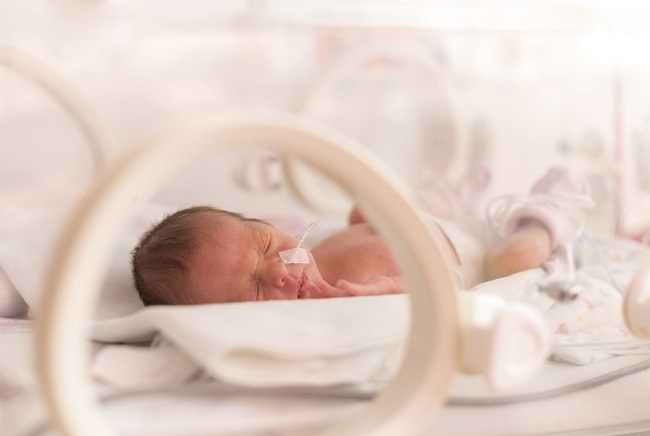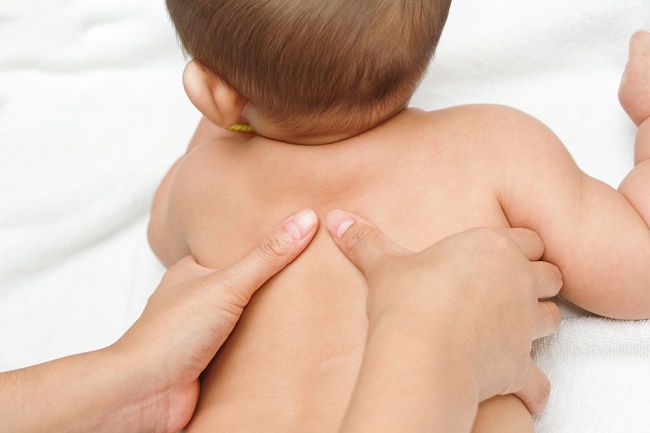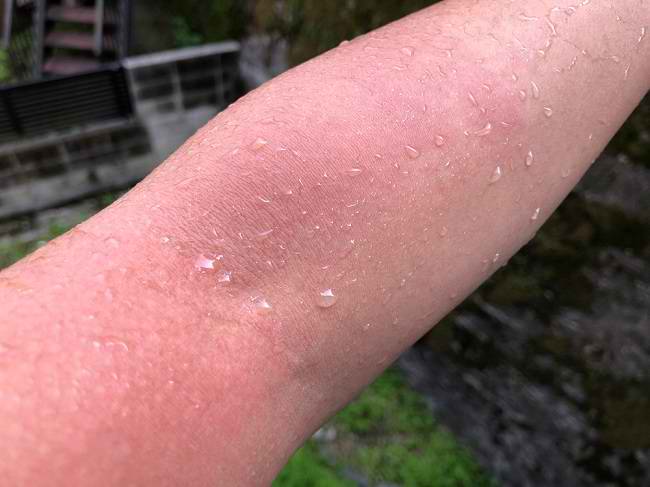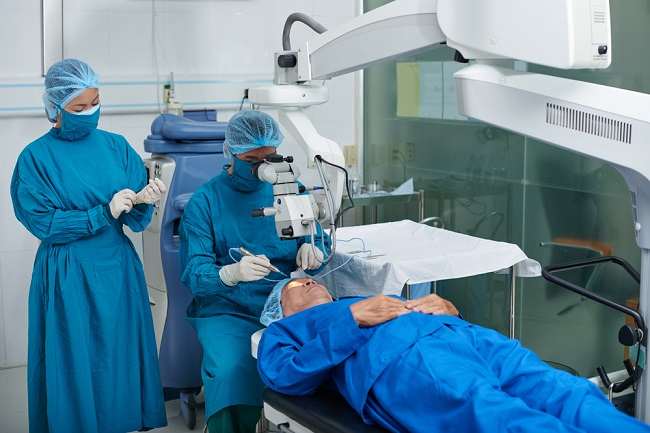Megacolon is an abnormal dilation or enlargement of the large intestineor colon. Megacolon will cause the large intestine to be unable to remove feces and gas from the body so that pile up in the large intestine.
Megacolon can be caused by various things, such as inflammation, bacterial infection, or due to congenital (congenital) diseases, such as Hirschsprung's disease in infants. Megacolon can also occur for no apparent reason, otherwise known as Oglivie syndrome. Dilation of the large intestine due to megacolon can be temporary or permanent.

Megacolon can cause symptoms in the form of digestive disorders, such as abdominal pain, hardening of the stomach, fever, and bloating. Patients with megacolon can be treated through surgery and medication to treat the cause of megacolon, such as antibiotics or corticosteroids.
Causes and Types of Megacolon
The causes of megacolon vary. To differentiate between them, here are three types of megacolon based on their cause:
Acute megacolon
Acute megacolon is dilation of the large intestine without a clear cause. Acute megacolon can occur when the large intestine is dilated without any factors that block the flow of the large intestine. Acute megacolon is also known as Oglivie syndrome.
Chronic megacolon
Chronic megacolon can be caused by congenital disease (congenital) or complications of the disease. Examples of inherited diseases that can cause chronic megacolon are Hirschsprung's disease and Waardenburg-Shah syndrome. While diseases that can cause complications in the form of chronic megacolon are:
- Chagas disease.
- Parkinson's disease.
- scleroderma.
- Metabolic disorders, such as hypothyroidism or hypokalemia.
Toxic megacolon
Toxic megacolon is a type of acute megacolon caused by a bacterial infection Clostridium difficile or inflammatory bowel disease, such as Crohn's disease or ulcerative colitis. Toxic megacolon will cause the large intestine to dilate rapidly, it can even cause the colon to burst.
Symptoms of Megacolon
Symptoms of megacolon vary, depending on the type. But in general, the symptoms of megacolon can be:
- Stomach ache
- Stomach harden
- bloating
- Nauseous
- Throw up
- Diarrhea contains blood.
- Constipation
In addition to these symptoms in the digestive tract, people with megacolon may experience fever and palpitations.
Chronic megacolon
Chronic megacolon generally causes symptoms in the form of constipation. Chronic megacolon arising from congenital disease can cause constipation in infants. While chronic megacolon that is not due to congenital disease will cause symptoms in the form of constipation in adulthood.
In addition to constipation, people with chronic megacolon may also experience fecal incontinence or sometimes diarrhea.
When to go to the doctor
Megacolon is a condition that must be treated by a doctor, especially chronic megacolon. Call your doctor immediately when symptoms of megacolon appear, such as abdominal pain and hardening of the stomach, followed by fever and tachycardia.
Megacolon can occur as a complication of inflammatory bowel disease, such as Crohn's disease or ulcerative colitis. If diagnosed with the disease, check with the doctor regularly to monitor the progress of the disease so it doesn't become megacolon.
Megacolon diagnosis
To diagnose megacolon, the doctor will ask about the patient's medical history and symptoms. After that, the doctor will examine the patient's physical condition, especially the abdomen. If the doctor suspects a patient has megacolon, the doctor will perform a scan.
The scan methods to diagnose megacolon are:
- Scanning in the form of X-rays, ultrasound, or CT scans of the abdomen, to see the condition of the digestive tract.
- Gastrointestinal binoculars (endoscope), to examine the inside of the digestive tract.
- Complete blood count test, to check for abnormalities in the blood that cause megacolon, such as infection.
- Electrolyte analysis, to check the body's electrolyte levels that change when there is an abnormality in the large intestine.
- Biopsy, by taking a sample of colon tissue and examining it in a laboratory to check for Hirschsprung's disease.
To help with the diagnosis, people with megacolon may be given barium fluid before the scan process so that the results are more visible.
Megacolon Treatment
In acute conditions, megacolon is treated with decompression. This method uses a special device such as a tube that is inserted through the rectum to relieve pressure on the intestines and reduce pain. In addition to a special tube, colon decompression can also be done with a colonoscopy for maximum results.
In addition to decompression therapy, people with megacolon will also be given drugs to help expel the obstructed stool. The drugs include laxatives to facilitate the process of defecation, or drugs neostigmine to increase muscle movement in the large intestine. Electrolyte solutions can also be given to treat electrolyte disturbances due to disruption of gastrointestinal function.
If the megacolon does not heal after decompression, treatment can be done with surgery. The operation can be performed using a colostomy method, which is making a new hole in the abdomen to remove feces. Another surgical method is a colectomy, which removes the enlarged part of the large intestine.
In patients with toxic megacolon, the wall of the large intestine can become weak, resulting in a hole or tear in the intestine. This condition can be treated with surgery to close the hole.
The tearing of the colon wall can also sometimes cause shock in the sufferer. This condition is caused by a bacterial infection of the large intestine until the sufferer develops sepsis. Patients with toxic megacolon who experience septic shock will be treated first before undergoing surgery.
The drugs that can be given to people with megacolon also depend on the cause, for example:
- Antibiotics, to treat infections.
- Ciclosporin or corticosteroids, to treat ulcerative colitis.
Megacolon complications
If treated properly, megacolon can be completely cured. However, if not treated properly, megacolon can cause complications in the form of a hole or tear (perforation) in the large intestine. A perforated large intestine can cause decreased consciousness, sepsis, and shock.
Megacolon Prevention
Megacolon can occur as a complication of inflammation or infection of the digestive tract. To prevent megacolon, seek medical attention immediately if you experience symptoms of infection or inflammation in the digestive tract. If you have been diagnosed with a disease, take treatment according to the doctor's instructions.
In addition, check with your doctor if you experience symptoms of diseases that can trigger chronic megacolon, such as Hirschsprung's disease or Chagas disease. Consultation with a doctor also needs to be done if you experience digestive disorders, so that these disorders can be treated immediately.









